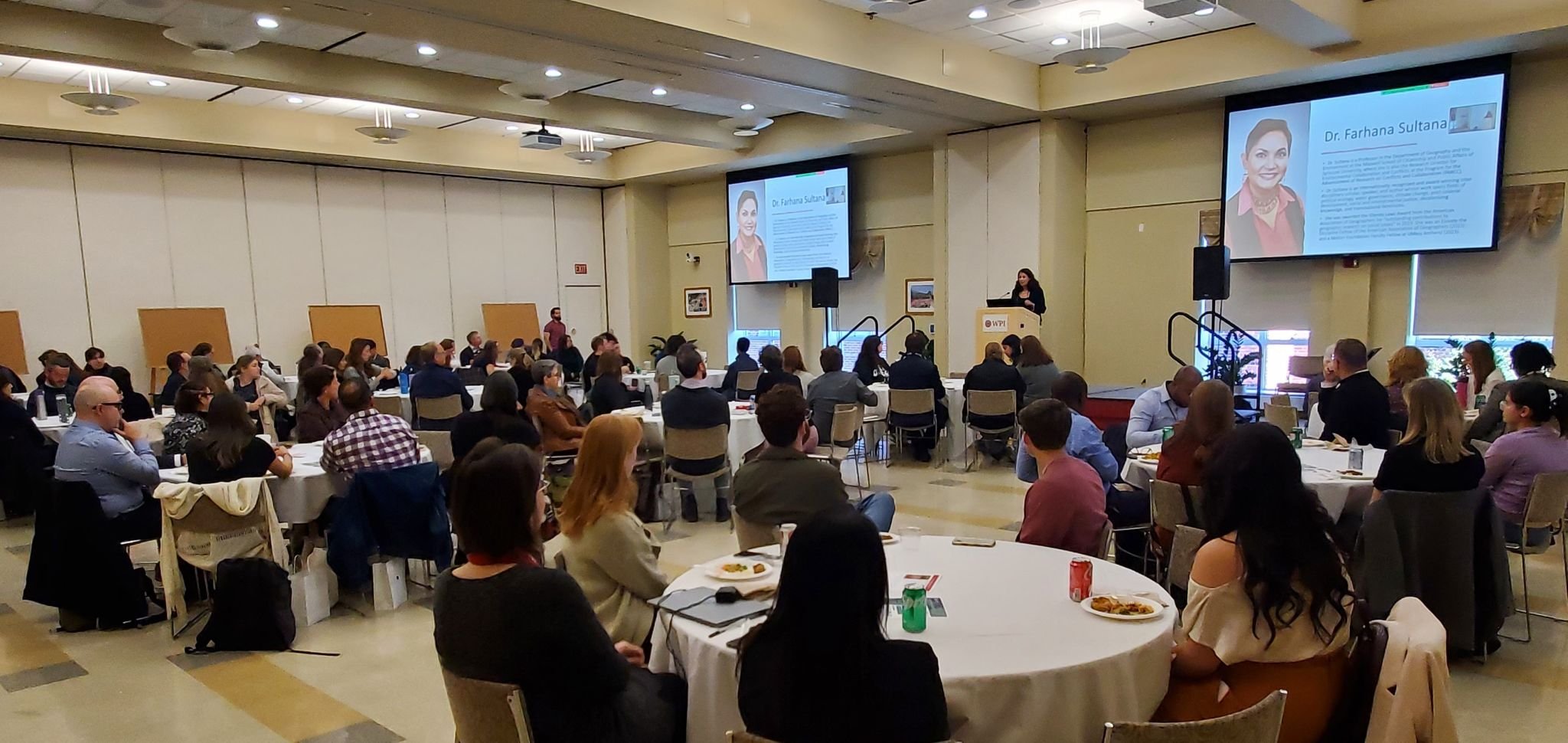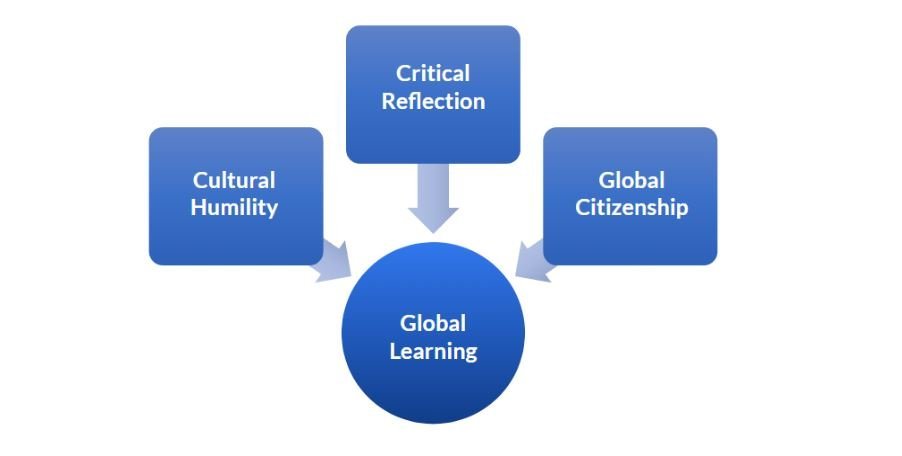
Participate in a Collaborative action team!
Action teams are participatory vehicles that contribute to the Collaborative.
In addition to these action teams the Collaborative mobilizes knowledge through its Communities of Practice and Hubs.
The recent call for action team nominations has closed. Our next nomination period is April 3-24 for July 2026 onboarding. To be placed on a reminder list email us.
Self-nominations are accepted and encouraged, scroll down for teams, details, and commitments.
Questions or want more information? Attend a drop-in or schedule a time to speak with managing director Mike Bishop.
-

Advancing Community Benefit Assessment Models Work Group
This work group — positioned within our Knowledge Mobilization action team — is exploring how to measure community benefit. (Interested people should nominate to one of those two action teams.) As a joint writing project we seek to curate and scale assessment models and instruments to better reflect the needs and perspectives of community partners, moving beyond traditional student-centered frameworks. We are interested in capturing the complexity of issue-based collaborations (e.g., food security, health equity) while ensuring voice across all stakeholders.
-

Membership and Diversity, Equity, and Inclusion
Ensures Collaborative policies, promotion, public-facing initiatives, fee-structures, planning, and institutional design is inclusive across all stakeholders.
Current priorities and work groups that new members can support include: capturing FTL testimonials (video) to promote the work of our members and interviews with Toolkit users (both with FTL-Toolkit action team members), strengthening student and community partner involvement, and ongoing recruitment of members from community colleges, state institutions, HBCUs, HSIs, and tribal colleges.
-

Knowledge Mobilization
Attends to the learning and knowledge creation needs of the wider scholar-practitioner community in service of the Collaborative’s mission, strategic goals, and principles. Includes developing and curating awards, blog, podcast, and webinars. This team meets quarterly with ourresearch team to consider avenues for mobilization of findings of the Global Engagement Survey.
Current priorities that new members can support include: helping to shape the content of our 2026 webinars and Summit, participating in a joint writing project on framing the roles, responsibilities, values, and structures that encourage teaching, learning, ethics toward a more just world, and developing a podcast episodes as co-inquiry or working through the knotty questions that our network is grappling with
-

Fair Trade Learning and Toolkit Development and Dissemination
Advocates for, and advances fair trade learning standards. Further develops and disseminates the Global Solidarity and Local Actions Toolkit. Ensures strong connection with knowledge mobilization team.
Current work groups and priorities that new members can support include: capturing FTL testimonials (video) to promote the work of our members and interviews with Toolkit users (both with Membership and DEI action team members), facilitating our new FTL community of practice, and developing an FTL consulting cadre
-

Advocacy Council (quarterly)
Provides insight and trends into fields of practice of the Collaborative. Advocates on behalf of the Collaborative regarding organizational partnerships and partnerships with other associations. Membership is by invitation.
-

Steering Committee
Represents the interests of membership and the larger community, serves the mission of the Collaborative, and works to meet the goals of the strategic plan. Lead or participate in another action team, and decide scope of work/potential projects for each team, holding a birds-eye view of all action teams (and proposing new teams). Membership is by invitation.
Additional details
Additional details
The benefits of participating include supporting our shared work, connecting with like-minded people, and developing/deepening skills, knowledge, and understanding about community-based global projects.
Teams meet monthly unless noted. Monthly time commitment including preparing for and attending meetings and action items in between meetings is 4 hours/month or 1 hour/week.
In addition to your team, we will ask you to dedicate your time to a work group within that team. Work groups are 3-5 people who take on a specific project. At monthly all-action team meetings progress and feedback is shared on these projects. This is included in in your 1 hour/week commitment.
Action Teams differ from our communities of practice. We have communities of practice (CoP) focused on our global engagement survey and fair trade learning. These are learning communities that do not have the same explicit focus of supporting the Collaborative. The intersection is that our action team members organize and facilitate our FTL CoP, so you could join that action team with an eye toward helping to facilitate that CoP.
Each team has a facilitator who is a Collaborative staff or Steering Committee volunteer. The chairperson is responsible for facilitating meetings and inclusive goal setting, outcomes, and reporting.
Interested people can join by nomination. Dues paying members and those who recently attended a CBGL webinar, Summit or Institute are eligible to self-nominate. Interested people should meet with managing director Mike Bishop to discuss opportunities.
We welcome new action team members once accepted into an action team through a one-hour orientation and onboarding.
In addition to the teams above, we convene ad hoc action teams to plan our Institutes, Summits, and other events. We recruit for these teams through our newsletter and social media.
Each February-April members establish priorities for their action team for the upcoming (June-July) program year.
Action team commitments
Serve at least one year, with onboarding every January and July
Make every effort to attend scheduled meetings and complete action items in between meetings
Sign the individual commitment or organizational / institutional commitment and strive to practice these in your action team and other roles
Familiarize yourself with our initiatives
Contribute intellectual leadership or implementation opportunities, or share those initiatives with your wider network whenever appropriate
Encourage your organization or institution to be an active, contributing member of the Collaborative. This includes organizational / institutional financial contribution (membership), if relevant
Provide feedback to continuously improve this critical community of practice
Attend in-person gatherings when relevant and reasonable